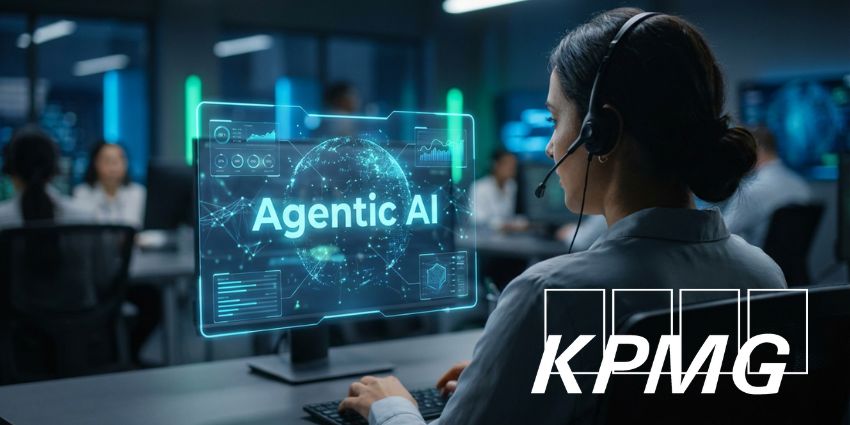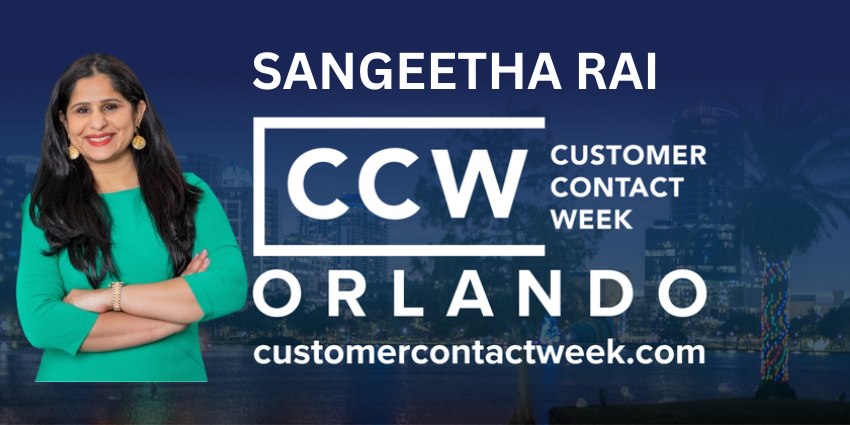Communications Platform as a Service (CPaaS) refers to cloud infrastructure that allows voice, messaging, video, verification, and more to be built into existing systems.
Rather than deploying a new app, product teams can wire communications directly into a checkout flow, service ticket, or appointment engine. Demand for this tech started slowly, with enterprises exploring password resets by SMS, delivery updates via WhatsApp.
Now, the market is growing fast. By 2028, Gartner predicts 90% of enterprises will use CPaaS. By 2034, the market for CPaaS could reach an incredible $108.12 billion.
Enterprise buyers aren’t chasing channels. They’re solving for time, reach, and consistency. A logic-driven system that sends the right message, on the right channel, with the right fallback.
At scale, communication has become less about apps and more about orchestration. CPaaS handles the handoffs, and gives enterprises the agility they need.
What Is CPaaS? A Simple CPaaS Definition
CPaaS stands for Communications Platform as a Service. The name is long. The function is direct.
Simply put, CPaaS platforms are cloud-based toolkits that allow developers to inject new features into business workflows. They connect digital systems, CRM, support, billing, with real-time communication.
A product alert might trigger an SMS. A missed support reply could escalate to voice. A phone number can be verified mid-registration. All of it happens behind the interface, without forcing the user to switch tools.
These platforms house an array of APIs, SDKs, documentation, and – often – no-code/low-code visual builders. On a broad scale, CPaaS platforms usually include three core layers:
- An Integration Layer: Connects the communications channels to various business systems, applications, or data sources.
- A Business Logic Layer: Allows organizations to define rules, workflows, and triggers that determine how and when messages or calls are sent and received.
- A Communications Layer: Powers interactions across channels such as voice, SMS, email, chat, and social messaging platforms.
In the customer experience space, brands often integrate CPaaS platforms with their contact center software, unified communication tools, and customer apps.
Beyond that, CPaaS gives companies the power to enhance security and compliance through use cases like multi-factor authentication and reimagine customer journeys.
Earlier platforms focused on delivery. Now the focus is control. Messages aren’t just sent, they’re sequenced. Voice calls route by rule. AI transcription logs the results.
CPaaS vs UCaaS vs CCaaS: What’s the Difference?
They sound interchangeable. They aren’t, but they are unifiable.
CPaaS, UCaaS, and CCaaS sit in the same neighborhood, but on different blocks. One is infrastructure. One is about internal calls and meetings. One runs the contact center. Each solves a different problem.
What is CPaaS? Embedded and Event-Driven
CPaaS solutions don’t ship with a user interface. There’s no dialer, no chat window. Instead, they provide APIs and logic layers that connect messaging, voice, and video to apps and workflows already in use.
A package is delayed; the system triggers a message. A transaction fails; the platform tries to verify the identity. If a bot drops a conversation, the tool escalates to a call. The system handles the routing without human involvement.
What is UCaaS? For Meetings, Messaging, and Teams
Unified Communications as a Service is designed for people inside the business. It’s the virtual phone system, the calendar-based video calls, the Slack alternative.
The features are bundled together: voice, chat, meetings, voicemail, sometimes email. The interface is built for employees, not customers. Think Zoom, Microsoft Teams, or Webex Calling.
CCaaS: Customer Support Infrastructure
Contact Center as a Service powers agents. Incoming calls. Outbound campaigns. Live chat. Email tickets. That’s the domain.
CCaaS platforms track queue times, suggest responses, and surface context. They tie into CRMs, knowledge bases, and workforce tools. Unlike CPaaS, they’re opinionated about how support should be handled.
Bringing them Together
Most enterprises don’t choose one. They use all three. UCaaS for teams. CCaaS for service. CPaaS underneath both, adding control, logic, and flexibility where it’s needed.
A customer misses an appointment reminder. CPaaS logs the event. CCaaS routes it. UCaaS enables the callback. The handoff is invisible. When the pieces work together, communication becomes less about channels and more about outcomes.
The Purpose of CPaaS Solutions
According to Gartner, the role of CPaaS is to empower enterprises to build modern communication workflows without the complexity of building each feature from scratch.
Solutions often support voice calling (both inbound and outbound), text messaging, email, and security features, such as two-factor or multi-factor authentication.
Many also extend capabilities to popular messaging channels like WhatsApp, Viber, or Apple Messages for Business.
Additionally, CPaaS streamlines real-time, contextual interactions. For example, an organization might embed a video calling feature within a mobile application. Another might launch automated text notifications for appointment confirmations.
Such workflows rely on CPaaS APIs that offer a high degree of control over how communications move through a business. The result is a flexible, scalable approach that reduces the time to market for new communication innovations.
What is CPaaS? How Does CPaaS Work?
A CPaaS platform runs in the cloud. It connects telecom infrastructure, voice, messaging, video, and more, with business logic, customer data, and digital workflows.
The core components:
- APIs and SDKs for voice, SMS, MMS, RCS, WhatsApp, email, and video
- Control panels or low-code builders to design flows and rules
- Event triggers tied to backend systems, apps, or customer actions
- Security and compliance modules for identity checks, opt-ins, and message logging
At runtime, these pieces form a programmable engine. A system detects a trigger, such as an order placed, call missed, form submitted. A rule fires: notify by text, call back, escalate to a human. If the first attempt fails, fallback routes activate. If flagged, the flow can halt, log, or notify a review queue.
Some CPaaS solutions include native AI. These features handle things like:
- Intent detection from open-text replies
- Auto-escalation based on tone or language
- Summarization of calls and chat threads
- Smart channel switching based on availability
The communications themselves don’t sit inside a new app. Instead, they move through existing channels, often invisible to the user. The key is orchestration.
Infrastructure, logic, and channel management are all handled by the platform. Teams control the experience; the provider handles delivery, reliability, compliance, and scale.
What is CPaaS? Core Capabilities
The most effective CPaaS solutions don’t just connect channels, they create space for logic, compliance, and intelligence to run in real time.
These platforms work best when they fade into the background. A system routes messages based on urgency. A call summary appears instantly after the conversation ends. A failed WhatsApp attempt switches to SMS without manual intervention. None of it requires building new infrastructure. All of it starts with the right capabilities.
Programmable Messaging, & Video
Most CPaaS companies support SMS, MMS, RCS, email, and WhatsApp by default. The stronger platforms manage message formatting, fallback rules, opt-out tracking, and template approvals without extra setup.
Video is increasingly part of the baseline, embedded directly into portals or mobile experiences. Insurance adjusters, telehealth professionals, and remote support teams are using live video in ways that blend into the broader customer journey.
Smart Voice Capabilities
Voice is where CPaaS moves beyond traditional telecom. Calls can be triggered by customer action or system logic. IVRs are dynamic, shifting based on context or data pulled in at the moment of interaction.
Masking, forwarding, routing by language or region, all of it is programmable. In some platforms, SIP support and contact center integration blur the line between inbound and outbound.
Built-in AI, NLP, and Summarization
Some CPaaS platforms now include generative AI modules as core capabilities. That includes:
- Transcription with tone detection
- Call and chat summarization
- Entity recognition for CRM enrichment
- Real-time escalation based on sentiment or language
These features reduce the load on agents and create consistent logs across channels.
Real-Time Analytics
Modern CPaaS solutions offer dashboards that track delivery, engagement, and quality across all channels. The best tools log not just what happened, but why: channel fallback, region block, DND filtering, or opt-out logic.
Security & Compliance
CPaaS platforms are often built with frameworks like 10DLC, HIPAA, GDPR, and SOC 2 in mind. Features like automated consent logging, data residency enforcement, and number validation are common in enterprise deployments.
Security teams often look for direct integrations into SIEM tools or authentication systems. Message retention, redaction, and regional handling rules are also key decision points.
Benefits of CPaaS for Enterprise Buyers
CPaaS solutions give organizations a way to manage communication without rebuilding core systems. Messages can be triggered by logic. Voice calls can route based on real-time data. Workflows update as regulations shift.
That flexibility shows up in different ways depending on the function. For IT, it’s less infrastructure to manage. Marketing teams gets better targeting and faster delivery. Operations benefit from fewer dropped handoffs. For legal, it’s traceability.
- Faster Time to Market: No new platform. No full rip-and-replace. CPaaS layers onto what’s already there. Teams can build new messaging flows in hours, and update them without waiting on a vendor release cycle.
- Channel-Agnostic Engagement: One customer wants WhatsApp. Another wants email. A third won’t reply unless it’s SMS. CPaaS providers handle this without duplicating logic. The platform picks the right channel based on preference, region, or behavior, and can switch mid-flow if needed.
- Reduced Tool Sprawl: Legacy systems often add new software to solve communication gaps. The result: overlapping vendors, inconsistent reporting, and routing conflicts. CPaaS consolidates messaging and voice under a single framework.
- Built-in Intelligence: Many CPaaS companies now offer embedded conversational analytics. This allows teams to summarize a support call. Detect frustration in a chatbot response. Escalate based on tone or topic.
- Compliance Without Bottlenecks: Global enterprises don’t operate under one rulebook. A campaign in Germany, a support call in California, a verification step in Singapore, all fall under different frameworks. Strong CPaaS platforms recognize this. Messages can be filtered, routed, or blocked based on compliance logic.
<button_cta link=”https://www.cxtoday.com/cxawards/ “>DISCOVER CPAAS LEADERS</button_cta>
Use Cases for CPaaS: Industry-Specific Examples
CPaaS solutions are rapidly gaining attention across sectors, offering companies an intuitive way to streamline and augment customer experiences.
Demand for this technology is growing as vendors experiment with generative AI solutions, heightened interoperability, and unique channel mixes, all while enhancing UIs to make platforms more accessible.
Below are some of the most widely-utilized, industry-specific CPaaS use cases.
Financial Services
The financial services (FinServ) industry is quickly emerging as a strong market for CPaaS.
Why? Because FinServ companies need secure communications, seamless messaging to voice transitions, and flexible growth. CPaaS addresses these needs.
Many banks and financial companies are already using CPaaS to deliver real-time alerts, transaction confirmations, and fraud prevention notifications.
Others use CPaaS to enable two-way communication with a higher level of security.
Plus, CPaaS allows established financial enterprises with legacy on-premises systems to modernize quickly.
CPaaS solutions can help businesses leverage AI tools, minimize the risks of digital transformation, and reduce operating costs.
Retail and eCommerce
Retailers and eCommerce brands use CPaaS to build fluid omnichannel customer journeys.
Today, many companies – like Walgreens – leverage messaging apps to help mobilize the shopping experience while unlocking a higher level of “personalization” for customers.
Businesses can connect social messaging apps directly with their product catalogs, allowing customers to browse and purchase within the same channel. They can use AI tools and chatbots to deliver automated support and personalized product recommendations to customers on the move.
Channels like WhatsApp and RCS are particularly useful for tailored promotional campaigns, allowing retailers to share multi-media messages that highlight product pictures or videos, increasing conversion rates.
Healthcare
Reliable real-time communication is crucial in healthcare. Countless organizations rely on intuitive communication systems for emergency response, collaboration, consultations, and more.
CPaaS platforms give healthcare companies the tools they need to integrate numerous channels, from video (for telemedicine appointments) to messaging, into their systems.
Many clinical providers now also use CPaaS to send appointment reminders, medication prompts, and prescription details to patients.
Integrating CPaaS into EHRs (Electronic Health Records) also means clinics can maintain updated information and even use triggers to push notifications to patients when test results are ready or patients need appointments.
CPaaS also allows for secure, compliant communication, helping to ensure sensitive patient information is protected according to the regulations of the industry.
Travel and Hospitality
So, what is CPaaS doing for the travel and hospitality sector? Just like in many other industries, the technology is helping companies enhance real-time communication and deliver intuitive customer service.
Travel agencies, hotels, and airlines use real-time updates to handle large volumes of itineraries, reservations, and unexpected schedule changes.
CPaaS platforms enable automated notifications about flight delays or gate changes, making it easier for customers to stay informed.
Hotels and resorts also use CPaaS to send booking confirmations, manage check-in processes, and streamline customer support.
Moreover, employees can manage routine requests through chatbots or interactive voice response (IVR) systems, escalating only urgent or unusual concerns to live agents and boosting efficiency.
Food and Beverage
CPaaS leaders are quickly discovering new opportunities with CPaaS in the food and beverage industry, particularly thanks to the rising demand for AI.
Intelligent assistants can help guide customers toward recipes and menu items that suit their specific needs.
A CPaaS-driven chatbot can suggest replacements for out-of-stock items for customers, reducing friction at checkout. It can also link seamlessly to mobile payment APIs, providing real-time order tracking and follow-up insights.
CPaaS also empowers food and beverage companies to automate order confirmations, delivery updates, and reservation reminders, keeping customers informed.
What Is CPaaS? The Vendors to Watch
CPaaS providers are quickly discovering new ways to differentiate their offerings. The top CPaaS providers are experimenting with everything from “ready-to-launch” AI solutions to integrated omnichannel and network APIs.
Here are some of the top CPaaS vendors to watch out for.
1. Infobip
Infobip is a leading CPaaS vendor known for its rapid-fire innovation.
Its platform covers a broad range of communication channels, including RCS, SMS, and chat apps.
Infobip is even experimenting with AI and network APIs.
Plus, its headless SaaS portfolio, based on microservices, allows for flexible scaling across industries.
2. Vonage
What is CPaaS without Vonage? A pioneer in merging CPaaS with enterprise communications platforms, Vonage has constantly expanded its footprint in CPaaS, ever since its acquisition of Nexmo.
Vonage’s rich collection of tools and strong presence in the developer community give it an edge, alongside the telco connections of its parent company: Ericsson.
3. Twilio
Twilio remains synonymous with the term “CPaaS” for many businesses.
The company that founded this software category continues to innovate, focusing heavily on channel partnerships and solutions that address real-world problems (like advanced security APIs).
As it refines its CPaaS strategy, Twilio is – as of March 2025 – once again achieving double-digit growth after a period of revenue stagnation.
4. Cisco Webex
Cisco branched into the CPaaS arena with the 2021 acquisition of IMImobile.
Now, Cisco’s “Webex Connect” solution offers a deep array of solutions, including the Webex AI Agent studio, designed to simplify building intelligent workflows.
Plus, Cisco offers a platform that combines security, high reliability, and customization – everything modern teams are looking for from a CPaaS vendor.
5. Sinch
Sinch is another company commonly associated with the CPaaS market. It serves both enterprises and telcos with a portfolio that covers SMS, voice, email, and verification APIs.
Today, Sinch offers a robust ecosystem with 500 pre-built integrations for third-party vendors.
Additionally, the company is focusing heavily on AI advancements (such as NLP in more than 100 languages).
6. BICS
Part of the Proximus group, BICS initially concentrated on the carrier space.
Over the years, the company acquired various companies, such as TeleSign, expanding its CPaaS footprint.
Its global footprint stands out, particularly in emerging markets.
By unifying various business segments, BICS aims to offer programmable communications, security, and identity solutions on a global scale.
7. Tata Communications
Tata Communications offers CPaaS under the umbrella of a global telecom and technology provider.
Its acquisition of Kaleyra in 2023 expanded its CPaaS capabilities for large enterprises.
Tata’s DIGO suite covers voice, messaging, and AI-driven tools.
Plus, network APIs are a top priority, enabling features such as age verification and SIM swap prevention.
Looking for a full rundown? Visit the CPaaS market map.
How to Choose the Right CPaaS Provider
For enterprise teams, the checklist usually starts with coverage: does the platform support SMS, voice, video, and WhatsApp? But the real value appears later: when flows scale, when regions expand, and when something breaks.
Not all CPaaS providers are built the same. The differences tend to show up in areas like latency, data handling, integration overhead, and ongoing support.
Here’s what experienced teams typically look for:
- Compatibility with Existing Systems: CPaaS should fit into current infrastructure. CRM systems, ticketing platforms, marketing tools, identity layers: everything should connect with minimal friction. Native integrations are ideal. Webhooks and REST APIs should be well-documented, versioned, and tested.
- Global Delivery, Local Intelligence: Coverage alone isn’t enough. Enterprises need message deliverability across markets, with localized fallback rules. Carrier routing, time zone management, language support, and DND compliance are all non-negotiable at scale. Vendors with direct carrier connections and in-region failover tend to outperform resellers or API-only brokers.
- Compliance Frameworks: CPaaS companies working with regulated industries need built-in support for GDPR, HIPAA, 10DLC, and PCI-DSS, plus flexible policies for data residency, redaction, and logging. Look for dynamic consent handling, secure key storage, encrypted payloads, and API-level controls for sensitive flows.
- Reliability and SLA Enforcement: Failover paths. Real-time monitoring. 24/7 response windows. Uptime guarantees. For mission-critical use cases, there’s no tolerance for dropped messages or blind spots. Leading CPaaS solutions offer delivery confirmation logs, message tracebacks, and live support with enterprise SLAs.
- AI and Orchestration: Smart flows matter. Providers offering AI-enhanced orchestration, such as sentiment-based routing, channel switching, and intent recognition, create significant time savings downstream.
Support, sandboxes, and scalability are important too. Sandboxes speed up testing. Clear documentation reduces development time. Responsive solution architects keep launches on track. Without strong vendor support, implementation timelines often slip and logic breaks under real-world conditions.
What is CPaaS? The Future of CPaaS
The early use cases were basic. Appointment reminders. Password resets. Delivery updates. Now CPaaS solutions are being asked to do something more complex: understand intent, respond to context, and operate inside environments that change weekly.
- AI Moves to the Core: What started with transcription is now moving toward decision-making. Today’s CPaaS platforms summarize calls and detect tone. Next, they’ll handle triage, deciding when to wait, when to reply, and when to escalate.
- Integration Becomes the Standard: Standalone tools are phasing out. CPaaS is increasingly embedded inside broader stacks: contact center, collaboration, CRM. The most advanced deployments treat CPaaS as the connective layer between CCaaS, UCaaS, and backend platforms.
- New Use Cases: A warehouse flag triggers a call. A field agent receives a reroute instruction. A system error pings support and ops simultaneously. These aren’t customer conversations. They’re operational signals, made actionable by programmable communication.
- Regulatory Pressure: 10DLC registration, AI disclosure laws, cross-border data restrictions, platforms can no longer treat compliance as a feature. It’s a design principle. The best systems already support message throttling by geography, redaction by use case, and auto-consent handling based on channel.
- Expectations Keep Climbing: Buyers expect communication to behave like the rest of the stack: intelligent, flexible, and self-correcting. Uptime matters. So does orchestration. So does visibility.
CPaaS is no longer just a delivery engine. It’s becoming the control layer between intent and outcome. Want to stay ahead? Read the latest market reports.
CPaaS & The Future of Communications
So, what is CPaaS? For many organizations, it marks the future of enterprise communications.
As digital transformation accelerates, more organizations will seek flexible platforms that allow them to adapt quickly to new trends in customer engagement.
CPaaS will continue to integrate with enterprise systems and AI, empowering companies to create more personalized and intelligent interactions across channels.
Major providers in the CPaaS market all share an emphasis on continual innovation.
Infobip has developed modular architectures and advanced rich messaging. Vonage has harnessed its long-standing integration of UC, CCaaS, and CPaaS. Twilio remains focused on developer-first innovation. Cisco Webex has turned its networking and security pedigree toward creating secure, scalable communication workflows.
Overall, CPaaS helps enterprises modernize customer experiences without heavy infrastructure investments. Ready to explore further?
- Join the Community: Explore trends shaping digital communication. Share insight with enterprise leaders, analysts, and innovators pushing CX forward.
- Test the Tech: Meet the CPaaS providers redefining real-time customer engagement at upcoming events. See live use cases. Explore hands-on demos.
- Plan Your Next Purchase: Visit the CX Marketplace to compare the top CPaaS platforms, contact center vendors, and data-driven tools driving business outcomes.
Alternatively, explore the full CX landscape in one place:







